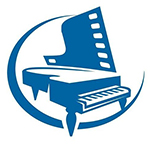It happens to all of us. Long teaching hours, family demands, church work, personal life errands. What happened to the practicing you did regularly so long ago? Realistically, for many of us, diligent daily practice began deteriorating once you were no longer in school or university. Real world issues such as job security and building a profitable studio overshadowed what you thought were life-long habits. Remember when you couldn’t wait to practice each day?
Perhaps you feel you no longer have time–at least not the time you used to devote to piano study. For many, accompanying for church, vocalists and instrumentalists is your primary performance medium now and the practice it takes to get that literature ready is almost all the time you have. That’s playing! That’s performing! My personal journey during the past four years was playing up to 10 to 12 hours weekly at a nearby university for the vocal department. my love for pedagogy (ie, this website and blog), lecturing suffered. My solo repertoire was in the trash. I missed it–I wanted it back. One day I sat down and examined my priorities–my home studio was filled to capacity and had been for almost three years since moving to Cary, N.C. I wanted to continue accompanying but not on such a structured schedule. I wanted my solo work back and I wanted to expand my reach both in developing this website and lecturing to teachers groups. I decided accompanying took third place to those two goals and so I made the decision to stop the regular work at the school and devote myself to my top two goals.
After deciding your priorities, what’s next? Perhaps there’s nothing you feel you want to drop, but how to find the time, and why bother? The answer is simple. You can only teach to the level that you can play yourself. I have met a few exceptions in my life, but not many. The truth is, use it or lose it. Perhaps you once could play a Beethoven Sonata or Bach Prelude and Fugue, but if you haven’t done it in years, chances are your skills are diminishing. It’s a shock to the system to realize you cannot demonstrate the trill or a long sixteenth note passage for lack of practice.
You likely do not have time to practice three or four hours per day, but that’s quite beside the point. Here are some tips to get you started into some level of time spent at the piano that is manageable for your time and particular circumstances.
- Be Realistic. If one hour a day or 1.5 hours, or 2 hours is your maximum, then make that your goal.
- Select Repertoire Based on Your Time Goal: If 1 or 1.5 hours is your max, then don’t try to play a difficult, multi-movement work that you cannot learn in a reasonable amount of time.
- Consider Teaming Up with a Mentor. After you get your practicing going, perhaps a lesson once a month or even quarterly with someone in your area would really help you over the difficulties and get your exciting about practicing again. Check your local university–everyone needs another ear.
- For Most Teachers, Morning is Optimal Practice Time–Just like exercising, the later in the day it gets, the less likely you will be to fulfill your practice time.
- Mark your Personal Time on Your Calendar. Just like an appointment, you must put yourself first. Map out your time. Do not schedule doctor’s appointments or other errands until after your practice time! This is essential to your success.
- Do Not Check Facebook, EMAIL, Instragram or Phone Messages until your practice time is over. Otherwise, these distractions eat into your time and before you know it you’ve lost your private work time. For example, I have a mother in a nursing home. I am responsible to be available should they need to speak with me. Jumping up and down to check the phone every time it rings is distracting. So, I put a special ring on my phone for the nursing home. Problem solved. Remember that although we are joined at the hip to our devices, there are actually very few issues that cannot wait an hour for you to return their call!
I hope this list has started you to thinking about the distractions and time-eaters we all face. With a little planning, you can spend time at your instrument to accomplish the goals that fill you professionally and emotionally. So instead of wishing you could play a set of pieces, or a larger work, or be a sought after accompanist in your area, set yourself up for success! Now in early July is the perfect time to set a plan in motion and get something worthwhile to you started over the summer months. It’s not too late!
